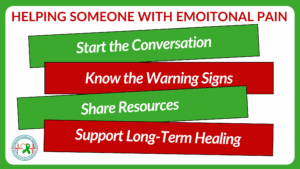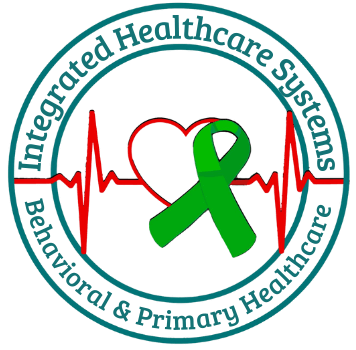Why Suicide Prevention Month Matters
Every September, communities across the country come together for Suicide Prevention Month—a time to raise awareness, spread hope, and let people know that help is available. Suicide is the 12th leading cause of death in the United States, claiming the lives of more than 48,000 people each year (CDC). Behind those numbers are families, friends, and communities forever changed.
But there’s also hope. Research shows that open conversations, early intervention, and access to mental health resources save lives. At IHCS (Integrated Healthcare Systems), we believe that no one should ever face their darkest moments alone.
Understanding the Problem: Why Suicide Prevention Is Urgent
Suicidal thoughts can affect anyone—regardless of age, gender, or background. But certain groups face higher risks:
- Youth and young adults: Suicide is the second leading cause of death among people aged 10–34.
- Veterans: According to the VA, veterans are 1.5 times more likely to die by suicide compared to the general population.
- Individuals with untreated mental illness or substance use disorder: Lack of access to consistent care increases risk.
- LGBTQ+ youth: Face significantly higher rates of suicidal ideation due to stigma, discrimination, and isolation.
Recognizing these risk factors is the first step toward prevention. The second is ensuring that people know they are not alone and help is within reach.
Signs Someone May Be Struggling
Suicide prevention starts with awareness. Many people show warning signs before a crisis, and noticing them could save a life. Look for:
- Talking about feeling hopeless or like a burden
- Withdrawing from loved ones or social activities
- Extreme mood swings or sudden calm after depression
- Giving away possessions or tying up loose ends
- Increased substance use or reckless behavior
If you recognize these signs in someone you know, don’t wait—reach out, listen, and connect them to support.
How We Can All Help: Small Steps, Big Impact

1. Start the Conversation
It can feel uncomfortable to ask someone if they’re thinking about suicide—but research shows it does not “plant the idea.” In fact, it opens the door to honesty and relief. Try:
- “I’ve noticed you’ve been struggling lately. Do you want to talk about it?”
- “You’re not alone in this. I care about you, and I’m here to listen.”
2. Share Resources
Point them to confidential, free resources like the 988 Suicide & Crisis Lifeline, which connects callers with trained counselors 24/7.
3. Reduce Stigma
The more we normalize talking about mental health, the safer people feel asking for help. Share educational posts, attend community events, or support organizations that advocate for mental health awareness.
4. Support Long-Term Healing
Suicide prevention isn’t only about stopping a crisis—it’s also about building stability, connection, and hope. Programs like IHCS’s supportive housing and mental health services help people rebuild their lives beyond survival.
IHCS’s Role in Suicide Prevention
At Integrated Healthcare Systems, we know that housing, mental health care, and community support are deeply connected to suicide prevention. When people have a safe place to live and access to consistent care, their risk decreases dramatically.
Here’s how IHCS contributes:
- Permanent Supportive Housing: Providing stability for those experiencing homelessness, a major risk factor for suicide.
- Case Management: Helping residents set recovery goals and access mental health resources.
- Community Support Groups: Building belonging and reducing isolation.
- Integrated Care Approach: Addressing mental health, substance use, and physical health together.
We’ve seen firsthand how restoring dignity and stability can create a ripple effect of healing.
Together, We Can Break the Silence
Suicide prevention isn’t just the job of mental health professionals—it’s a collective effort. Every one of us has the power to notice, listen, and guide someone toward hope.
This Suicide Prevention Month, we invite you to:
- Share the 988 Suicide & Crisis Lifeline with your networks
- Donate to IHCS programs that provide stability and support
- Talk openly about mental health in your circles
- Offer compassion to yourself and those around you
Need Immediate Help?
If you or someone you love is in crisis:
📞 Call or text 988 to connect with the Suicide & Crisis Lifeline (available 24/7)
💬 Chat online at 988lifeline.org
🚨 If it’s an emergency, dial 911
For those in Palm Beach County, IHCS is here to provide ongoing support through housing, case management, and compassionate care. Reach out to us today to learn how we can help.
✨ You are not alone. With the right support, healing is possible.






